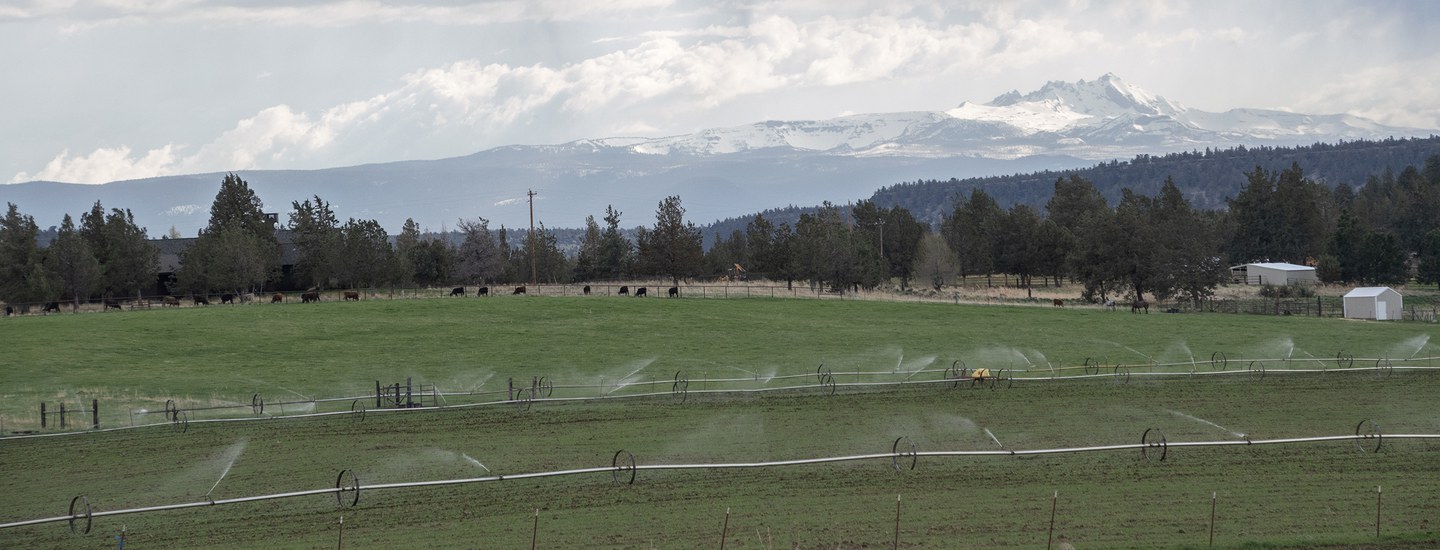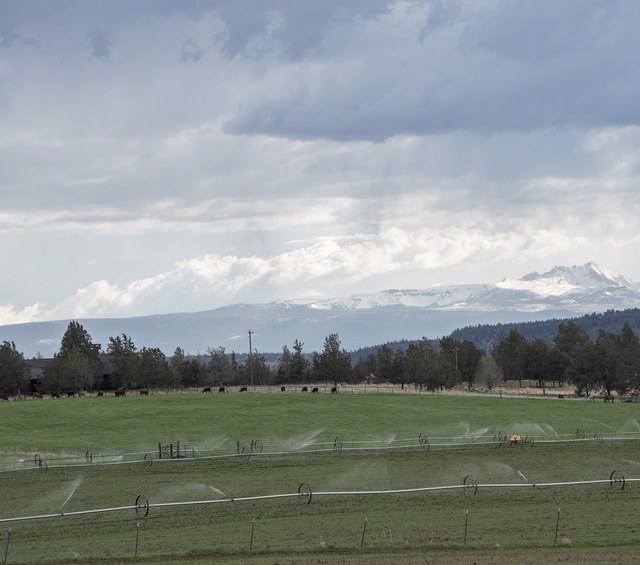The Land Trust is happy to announce that it has been awarded funding for two in-progress working lands preservation agreements in the first round of the Oregon Agricultural Heritage Program (OAHP) grant funding.
Natasha Bellis, the Land Trust's conservation director, said "We are thrilled to be awarded this funding. These state matching funds provided by OAHP are vital to securing the federal funding sources these projects need to come to fruition."
The proposed Pitchfork T land protection agreement is located in Deschutes County between Sisters and Terrebonne, and is part of Rainshadow Organics farm. The Pitchfork T agreement will help protect a 170-acre ranch for its regenerative grazing and farming practices and wildlife habitat. Pitchfork T is located within a core wildlife migration area for elk and mule deer, and will help connect land for wildlife habitat. Nearby protected lands include BLM and Forest Service managed land, as well as Land Trust Preserves, Whychus Canyon Preserve and Rimrock Ranch. Pitchfork T is at risk for development due to its location in a fast-growing portion of Central Oregon where land ownership is becoming increasingly fragmented.
The Land Trust also received funding for the second phase of protecting Aspen Valley Ranch. The Land Trust first protected 3,908 acres of the ranch in 2019. Located in Crook County near Post, Oregon, the second phase will protect an additional 3,907 acres. This area is an important wildlife corridor for pronghorn antelope, Rocky Mountain elk, and mule deer, with critical winter range for elk and deer. In addition, the sagebrush meadows provide important greater sage grouse habitat. Aspen Valley Ranch is also considered a critical refuge for wildlife and plants in the face of a changing climate.
We look forward to sharing more about these projects as they become permanently conserved!
Learn more:
- An Update on the Oregon Agricultural Heritage Program
- The Land Trust's work to conserve working farms, ranches, and forests


